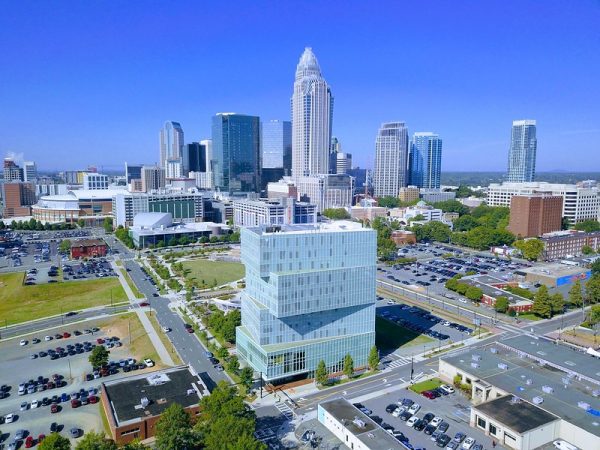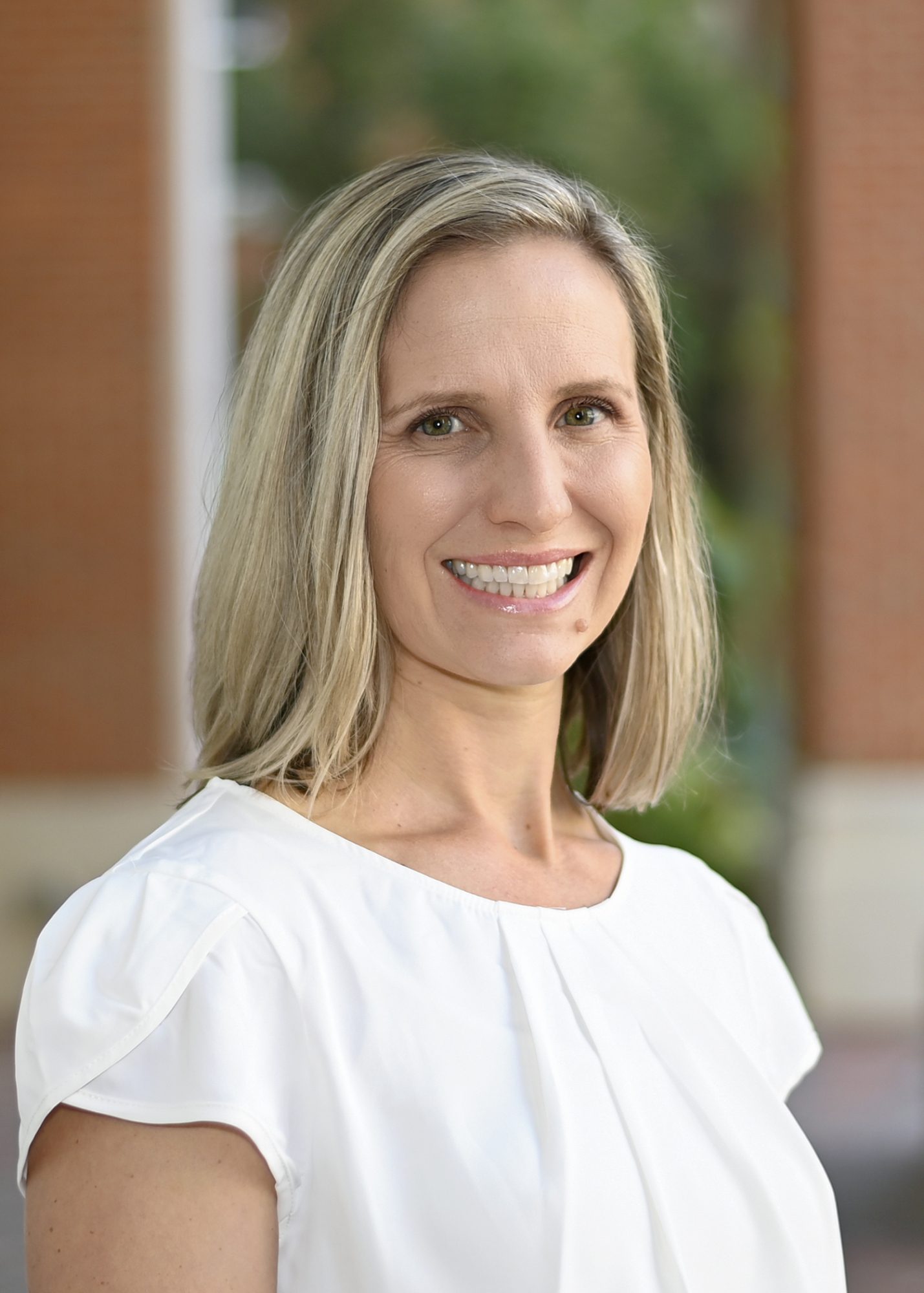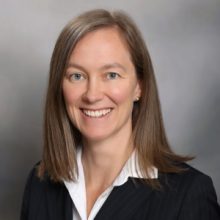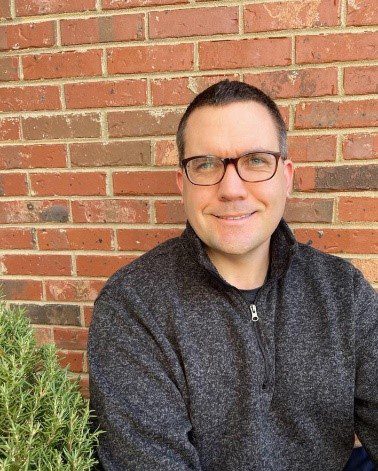New Gambrell Faculty Fellows Address Critical Community Questions

How could community help us weather the impact of climate change? How might Charlotte’s ever-evolving housing market impact local schools? What does it mean to truly mend the harms of systemic racism?
Those are just a few of the questions that UNC Charlotte faculty members will work to answer as part of the fifth cohort of the Gambrell Faculty Fellows. The fellows will tackle subjects from computer science to COVID aid, addressing a broad variety of challenges that have continued to shape conversations about equity in Charlotte.
“This year’s new cohort of Gambrell Faculty Fellows demonstrates, once again, the relevance of economic mobility to the many and varied aspects of our community and our lives,” states Dr. Lori Thomas, executive director of the UNC Charlotte Urban Institute.

Developed in 2018, the Gambrell Faculty Fellows Program grew out of the Charlotte Opportunity Insights Partnership, funded by The Gambrell Foundation.
The Faculty Fellows program funds and facilitates short-term research projects that address important issues in the Charlotte region, providing competitive grants of up to $18,000 while also ensuring that the local community can easily access the results of this research.
This year’s fellows join a growing group of faculty researchers studying some of Charlotte’s most critical questions related to equity and economic mobility.
“With this new cohort of fellows, we now have 44 faculty fellows from 22 academic disciplines, from all of our colleges, who have completed or are currently completing research that is immediately relevant to the Charlotte region and beyond. Our faculty continue to demonstrate their capacity to address some of our most important and pressing issues,” notes Thomas.
Repairing racism’s legacy

Dr. Apryl Alexander has always been interested in justice.
Currently the Metrolina Distinguished Scholar in Health and Public Policy and an Associate Professor in the UNC Charlotte College of Health and Human Services, Alexander spent years working with those affected by the criminal legal system.
Now, she’ll apply her background in clinical and forensic psychology to examine a much broader definition of justice, one that would address the ways that systemic racism has harmed the Black community in Charlotte — reparations.
“Reparations could be its own form of translational justice,” Alexander said.
In her research, Alexander will assess attitudes and the perceived societal and economic impact of various forms of reparations among members of Charlotte’s Black community. She’ll begin with a survey distributed to local residents who identify as Black, outlining a wide-ranging and intergenerational picture of their perspectives.
Then, she’ll move on to focus groups and individual interviews to get a more in-depth look.
Discussions about reparations have often centered on solutions like a one-time cash payment to the descendants of enslaved people, Alexander noted. But her research will broaden the conversation to include other forms of repair, such as land or direct investments in education or homeownership.
“Some people, including those in the Black community, have said that they don’t know if one check or one series of checks is going to resolve everything. A lot of the harms caused were systemic,” Alexander said. “Part of my project will be looking at that: What is the community asking for? What would be most helpful in this repair?”
The last few years have spurred a broader acknowledgement of racism and its legacy, Alexander said — but acknowledgement only goes so far.
“A lot of marginalized people have said we need to go beyond acknowledgement to think about the repair process.
This is by no means a new conversation, but a revised and revamped conversation,” she said. “How can we continue it and maybe even take actionable steps?”
Bouncing back from COVID learning gaps

When the COVID-19 pandemic shut down schools across the country, the federal government issued billions in aid to help public schools handle the fallout.
That included $50 million provided to Charlotte-Mecklenburg Schools to pay for one program that could help students who fell behind when schools closed: enlisting third-party tutoring providers to offer students outside-of-school help in key subjects like reading. Those services began in the summer of 2022 and will continue for at least the next two years.
Dr. Kristen Beach, an Associate Professor of Special Education in the Cato College of Education, and Dr. Joanne Carman, a Professor for Political Science and Public Administration, are taking an in-depth look at how that program is actually working for schools, students and their families. The pair will partner directly with CMS to evaluate how the external tutoring has been implemented and how effective it’s been in helping student reading levels bounce back from COVID.
“What we’re really hoping to do with this study is give some feedback and insights to CMS so they can make decisions about future programming,” Carman said.

Beach and Carman will meet with tutors, principals and families to gain insight into their experience of the program, in addition to sitting in on some tutoring sessions themselves. They’ll also analyze de-identified student data to see if the extra help is being reflected in higher test scores.
The goal of their research is to shed some light on the ways that supplemental tutoring programs can play a role in bridging persistent pandemic learning gaps.
“Our focus is on elementary reading for a reason. There are really big life implications for not being a strong reader,” Beach said. “It’s paramount that we ensure that all the young children in schools, but especially young children most impacted by COVID… are able to read.”
Single-family rentals and student churn
If you’ve tried to buy or rent a house in Charlotte over the last decade, you’ve probably noticed an increase in single-family homes available for rent, even in pricier neighborhoods. Between 2007 and 2016, the number of such rentals in North Carolina increased by about 30%.

While some policymakers have been critical of the companies behind those properties, Dr. Kelly Vosters has found these kinds of rentals can have an unexpected benefit for some families.
“Historically, to live in a neighborhood or area zoned for a really good school, if you wanted to have a single family home you had to have the means to purchase one,” said Vosters, an Assistant Professor of Economics in the Belk College of Business.
But as the number of single-family rentals increases in high-performing school districts, it’s reducing barriers for low-income households to gain access to higher quality schools, she said.
Vosters and her co-author, Virginia Tech Professor Tom Mayock, will divide their analysis into two parts. First, they’ll study this increase in single-family rental homes and its impact on student inflow and outflow – a.k.a “student churn” – at schools across North Carolina.
Then, they’ll take it a step further to examine how that kind of churn impacts student test scores.
“One goal of this project is measuring just how much this is affecting student movement,” Vosters explained. “The second piece is: Is this movement affecting student achievement?”
Vosters will evaluate statewide housing and standardized testing data to understand how the rise in single family rental homes across North Carolina is impacting student churn and, subsequently, student learning. It’s an important relationship to clarify, she said, as Charlotte is one of the leading markets in this kind of rental growth nationally.
“I think there’s a big policy focus on some of the negatives of this,” Vosters said. “(But) this is something that’s going to stay.”
“The big picture is thinking about the pros and cons of these types of units expanding,” she said. “Let’s think about what drawbacks there are and how we can address them without taking away the gains.”
Creating a path to computing careers

The College of Computing and Informatics is one of the fastest-growing programs on UNC Charlotte’s campus – but not every student has an equal shot at studying computer science before they get to college.
That’s a gap that Dr. Xiaoxia Newton, an Associate Professor in the Cato College of Education, and Dr. Audrey Rorrer, a Research Associate Professor in the College of Computing and Informatics, will study in-depth as part of their research project. The pair is teaming up to examine students’ opportunities to learn computing and computer science within CMS schools.
“STEM education is a great tool to uplift social and economic mobility for students who need it the most, “ Newton said.
But she added that many groups — especially women and Black and indigenous people of color — are still significantly underrepresented in the world of computing.

Newton and Rorrer will explore whether and how computer science learning opportunities in Charlotte might vary depending on factors like student population, school characteristics, and community wealth. The pair will utilize integrated data leveraged through the Charlotte Regional Data Trust, which includes longitudinal data on CMS schools, DSS Economic Services, Homeless Management Information Systems, and Crisis Assistance Ministry.
The pair will use a pre-established model called the CAPE framework — measuring students’ capacity for, access to, participation in and experience of computing coursework — to assess equity in Charlotte’s computer science education.
The ultimate goal is identifying common obstacles to a computing career path, Newton said, in the hope of helping more students from underrepresented backgrounds gain a valuable skill set that could unlock economic opportunity later in life.
“We can’t assume every student will have the means to access these opportunities,” she added. “This data can show the patterns of these disparities.”
Coming together to weather challenges like climate change

Social capital can be defined as the networks of relationships among people who live and work in a particular community, or the relationships and networks that can connect individuals to opportunities. In The Charlotte-Mecklenburg Opportunity Task Force Report, it was described as the “‘secret sauce’ for creating greater access to opportunity.”
One group of fellows is examining how it can also be an important tool for navigating challenges, including environmental injustice or climate change.
“The idea is, if you are in a society or a community where there’s knowledge of existing resources and opportunities, you’ll be more able to adapt and deal with change,” said Dr. Michael Ewers, Assistant Professor in the Department of Geography and Earth Sciences.

That’s why this group of fellows is teaming up across multiple departments to paint a detailed picture of social capital in two Charlotte neighborhoods — while also creating an online resource that can help other communities navigate environmental issues in the future.
The group includes Ewers, Dr. Marek Ranis, a Professor and the Sculpture Area Coordinator in the Department of Art and Art History, Adreonna Bennett, Community Engagement Librarian and Archivist at J. Murrey Atkins Library and Dr. Kristina Shull, the Director of Public History and an Assistant Professor in the Department of History.
The project grew out of Climate Inequality CLT, a research and outreach organization led by Shull. The organization has previously highlighted stories of climate migration, social injustice, environmental abuse and urban renewal in Charlotte.

In partnership with the Charlotte Mecklenburg Public Library, fellows will conduct participatory research at two public library branches in the West Boulevard and Pineville neighborhoods, both areas considered economically and environmentally disadvantaged by the federal government’s Climate and Economic Justice Screening Tool. At these library branches, fellows will collect oral histories, photographs, videos and other artifacts directly from members of the community.
Then, the team will compile the results of that fieldwork — plus mapping and data visualizations — into an online “atlas.” The online exhibit will then be transformed into an interactive touchscreen exhibit and displayed at the original libraries. “The unique thing about this project is that we’re centering it all at the local library,” Ewers explained. “It’s not a separate thing related to climate change or economic mobility, it’s this place that people already go to. It’s already a resource.”
The team hopes that their work in the Pineville and West Boulevard communities will serve as a pilot project that can then be expanded to other communities across North Carolina.

“It’s not it’s not about building or creating resilience,” Shull said. “It’s about locating where it already exists.”
[Read about the previous Gambrell Faculty Fellows here]
Hannah Lang